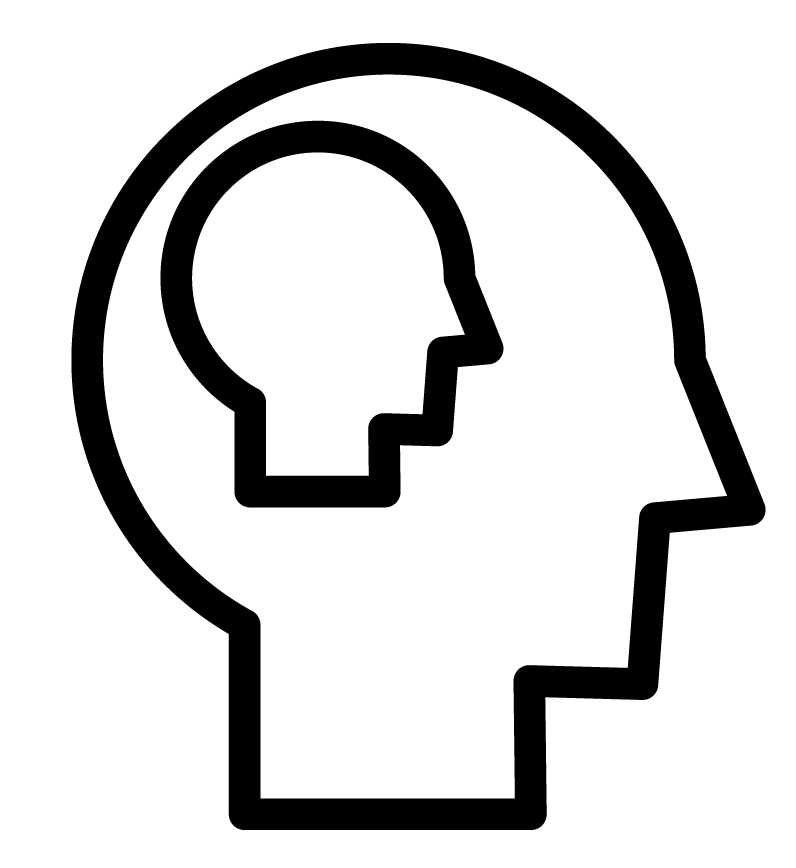In these stressful times, it’s easy for our worst selves to get the best of us. The COVID-19 pandemic has uprooted our daily routines, changing how we manage our work and family lives, how we shop, what and where we can eat, and how we stay fit. Things don’t feel right, and with each additional forced change, our worries grow and stress beats us down.
Before the pandemic, our routines were transparent and most of our daily decisions were habitual. In the past, having the kids home for Thanksgiving or inviting friends over for dinner didn’t knot up my belly with fear. Now, with Covid-19, there is so much at stake with each decision we make. I miss the days when normal life didn’t involve a likelihood of ending up in an ICU.
Disruption in our daily routines easily triggers negative emotional reactions. Our emotional responses are real, but they reflect the narratives (the stories in our heads) we live by. These narratives profoundly impact our lives, defining who we are and how we behave in the world.
Neuroscientists tell us that rather than living unaware of our unconscious narratives, we have another choice: the capacity to stand outside ourselves and witness our internal thoughts and feelings. The process of self-awareness is critical to helping us unravel our emotions and reconsider the thinking that makes our heads spin. When I consider the stories behind my adverse reactions, I can slow down, reflect, and ask a few questions.
Here are four ways to become more aware of your thoughts and emotions when making decisions affected by Covid-19:
Increase your emotional awareness: Emotions are physical manifestations of our responses to what’s happening in the world. They reflect our deeply held beliefs and mental models. Every emotion has an underbelly – a story to discover and learn from. Rather than being in the grip of a rising emotion about the daily complications brought on by the pandemic, we can pause to observe it, note it, and name it: What am I feeling? Disappointment, anger, sadness? When we get triggered in a conversation and catch a negative feeling arising, we can investigate the underlying story. “Why is this upsetting me? What are my concerns?” This inquiry releases us from the grip of our emotions. With practice, we become more self-aware, curious, and better at managing our emotional responses.
Investigate your desires: Decisions related to COVID-19 can be stressful when we don’t accept that the world and our lives have changed. We want to wish the pandemic away. Anger, fear, frustration, or resentment arise when our desires don’t align with reality. I want to get back to my swimming routine! I want to take our fall vacation in Vermont. Non-acceptance of how life unfolds reflects a misalignment between our desires and reality. Life works in mysterious ways. Our disappointments and resentments are small battles with reality and often a source of suffering. Awareness of our desires and acceptance of what we can and can’t control helps us live a more centered and peaceful life.
Become aware of the standards by which you live: Our judgments and opinions express the standards that we adopted from our family, religious tradition, and cultural background. Many of our standards operate unconsciously in our minds. What is acceptable behavior in this situation? What’s the right moral decision? While masks have become political football, the facts are clear about their success in helping prevent the virus’ spread. To hold a standard that masks don’t work rejects the available scientific data. When we accept available facts, we can consciously choose standards and make smarter decisions.
My wife and I recently relaxed our standards around surface contamination because new data suggests that contagion it is far more likely from airborne particles. We also have changed our standards for gathering with certain friends. Every person and family has the responsibility to decide the norms and decisions they choose to live by.
Pay attention to how power and authority affect your decisions.
We live in a world where hierarchies matter. In business, we operate by corporate hierarchies. At home, we live by familial hierarchies, and with friends, we live by social hierarchies. As with desires and standards, issues of power lurk in the background of our thinking and determine what voices or ideas which we grant authority to. I have made bad decisions in the past by listening to strong voices rather than my intuitions. Too often, we forget to trust our experience and instincts. When we are well informed and embrace our innate power, we make better choices about our health, relationships, and well-being.
As our self-awareness increases, the decisions we make around Covid-19 will be less stressful and much wiser.
Chuck Wisner is a highly sought-after strategic thinker, coach, and teacher in the areas of organizational strategy, human dynamics, communication, and leadership excellence. He is currently working as an advisor with leaders and their teams at major technology companies in the United States, other Fortune 200 companies, and non-profit institutions.


